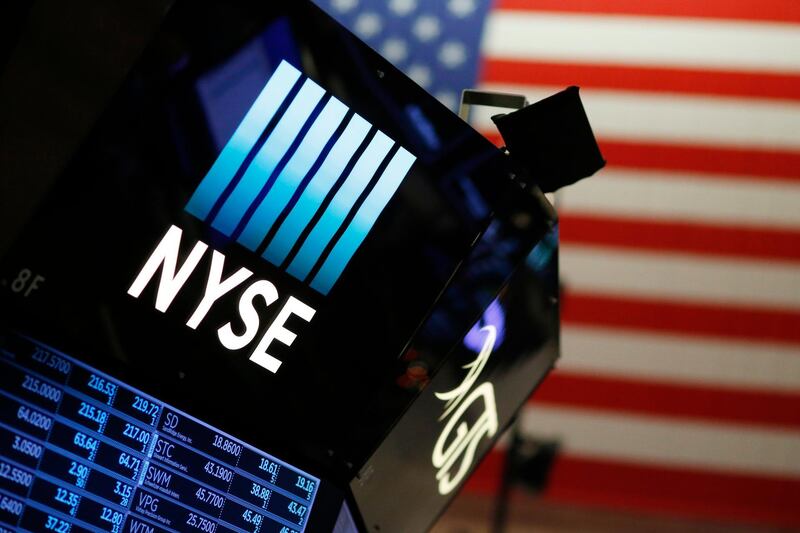After a banner year for US stocks that saw the Dow hitting repeated records, Wall Street strategists predicted 2018 would see more moderate gains and increased volatility as markets retreated in the final session of 2017 on Friday.
A late sell-off pushed the market into the red amid declines in Apple, Amazon and some other high-flyers, but the decline didn't put much of a dent in a year of records and soaring valuations.
Analysts expect many of the positive conditions that boosted equities in 2017 to persist in 2018, including robust earnings growth thanks in part to US tax cut signed into law by President Donald Trump and solid conditions in many overseas economies.
However, on the downside, they see little chance of a repeat of the extraordinarily low volatility seen in 2017, which led to exceptionally few pullbacks in US stocks.
"2018 should be a good year, but not a great year and it might require a little intestinal fortitude," said Sam Stovall, chief investment strategist at CFRA Research. "We will get more volatility for less return."
The Dow Jones Industrial Average jumped 25 per cent in the year, ending Friday's session at 24,719.22 after scoring 71 new records, the most since the index was created in 1896.
The S&P 500 rose 19.4 per cent to close 2017 at 2,673.61, while the tech-rich Nasdaq Composite Index surged 28.2 per cent to 6,903.39, after briefly crossing 7,000 for the first time earlier in December.
_______________
Read more:
[ World's wealthiest gain $1 trillion in 2017 on market exuberance ]
[ European shares set for best year since 2013 on tech and mining surge ]
[ Bubble or Boom? Bitcoin's heady ride - video ]
_______________
Oil and gas futures finished broadly higher Friday. Benchmark US crude added 58 cents, or 1 per cent, to settle at $60.42 per barrel on the New York Mercantile Exchange. That's the highest closing price of the year and the first time US crude has finished above $60 a barrel since June 2015.
Brent crude, which is used to price international oils, gained 71 cents, or 1.1 per cent, to $66.87 per barrel in London. The price of natural gas continued to rise in response to the harsh winter weather gripping a large swath of the US. It gained 4 cents, or 1.3 per cent, to $2.95 per 1,000 cubic feet.
Gold added $12.10, or 0.9 per cent, to $1,309.30 an ounce. Silver gained 22 cents to $17.15 an ounce. Copper slipped a penny to $3.30 a pound.
Bond prices rose. The yield on the 10-year Treasury fell to 2.41 per cent from 2.43 per cent late Thursday.
The dollar finished the year weaker for the first time since 2012. The ICE U.S. Dollar Index, which compares the value of the dollar to a basket of major currencies, declined nearly 10 per cent this year, its biggest drop since 2003.
The price of bitcoin was down 1.1 per cent to $14,263 as of 4:48 p.m. ET, according to the tracking site CoinDesk. Bitcoin futures on the Cboe Futures Exchange picked up 5.8 per cent to $14,550. The virtual currency has been highly volatile in recent weeks, hitting a record high before sliding sharply last week.
Major stock indexes in Europe finished mixed Friday. Britain's FTSE 100 climbed 0.9 per cent, hitting a record on the close of a shortened trading day. Germany's DAX and France's CAC 40 each declined 0.5 per cent.
For 2017, Britain's notched a gain of 7.6 per cent, while indexes in Germany and France closed the year with gains of 12.5 percent and 9.3 per cent, respectively.
In Asia, most markets ended the day with modest gains. Japan's Nikkei 225 closed 0.1 per cent lower, while Hong Kong's Hang Seng index gained 0.2 per cent. For the year, the Nikkei posted a gain of 19.1 per cent, while the Hang Seng finished with a gain of 36 per cent.







